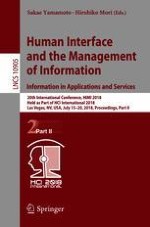2018 | OriginalPaper | Chapter
Development of a Blended Learning System for Engineering Students Studying Intellectual Property Law and Access Log Analysis of the System
Authors : Takako Akakura, Takahito Tomoto, Koichiro Kato
Published in: Human Interface and the Management of Information. Information in Applications and Services
Publisher: Springer International Publishing
Activate our intelligent search to find suitable subject content or patents.
Select sections of text to find matching patents with Artificial Intelligence. powered by
Select sections of text to find additional relevant content using AI-assisted search. powered by
